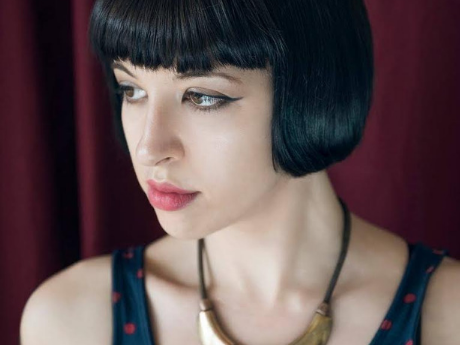Site Visits
Robin Richardson on the Minola Review

Tell me about the creation of Minola Review. When and how and why was it conceived?
In the past few years the realities of gender disparity in literature and in North American culture at large have come to the forefront. Organizations like CWILA, Canadian Women in the Literary Arts have worked to calculate, illustrate, and disseminate the numbers regarding men and women in print and review, and have made it clear that men maintain a majority in almost all arenas. There are more male reviewers and editors resulting in more men reviewed and selected for publication. Though there has been some move towards equity in recent years the fact remains we as women have been navigating all our lives in a culture curated and dominated by the male view. The Bechdel Test, which is put to film to determine whether or not it meets the minimal requirements of positive representation of women, requires only that there be more than one named women in the film, that the women talk to one another, and that they talk to one another about something other than men. These are very low standards and in 2014, according to The Guardian, only 55.4% of films passed this test.
When I really think about the impact this disparity has had on my life and on my own creative voice I feel nearly devastated. I have read, watched, listened to the human experience through the lenses of men. I have seen myself and other women as objects and as people who would have to work hard to overcome the inherent limitations of their gender. It upsets me greatly that this was ever my reality and that in many ways remnants of its influence remain.
I created Minola Review, named after Katherine Minola, the shrew who is arguably broken by men in "The Taming of the Shrew," in an attempt to resuscitate that stifled voice. Minola Review features all women and is carefully curated for only the strongest, fiercest, most honest voices. Minola Review is a space for us to inhabit our full female selves, to be messy, real, goofy, angry, and bewildered without worrying about censoring for or pandering to the visions and opinions of men.
What makes Minola Review different from other places to read poetry (and literature) on the internet?
Since it's inception one year ago Minola Review has gained a readership of over 1,500 and is rapidly growing. Not only do we represent the strongest, most courageous in women's voices, but we have been blessed with an influx of powerful submissions from Canada and the US, New York in particular. Minola Review showcases new voices alongside established, adding dynamism to an already divers, and unflinching platform.
There is also, of course, the simplicity and navigability of the site. Each month we publish three pieces of poetry, and three pieces of prose. Each piece is easy to find, easy to read, and is presented with its own visual accompaniment. No author photos are provided as the last thing we want is readers focusing on women's faces rather than our words.
What is something that you have recently published that really excited you, and why?
In the last issue of 2016 we published a poem by Jaime Forsythe, which I consider to be one of her finest. It's called "If Lightning Was a Thing You Could Plug Into," and it's a surrealistic stream of consciousness exercise, which I believe reveals a rare intimacy between poet and reader:
Every time I see my insides on a screen, I think: well, this looks familiar. When a seahorse bobbed into the frame I was hardly surprised. What is me and what is broth, thyroid, fortune, oxytocin, demons, pectin, polyurethane, nori, soil?
What should someone submitting work to Minola Review know about the site?
We are open to femme-identifying, and nonbinary writers. We encourage truth, clarity, courage, and uncertainty. We can smell pretense through email. Keep it real.
What other literary sites and journals, online or print, are your go-to?
No Tokens, Room Magazine, Cosmonauts Avenue, Poetry, The Rusty Toque, Joyland, The Atlas Review. There are so many more but I'll leave it at this digestible number for now.
Thank you for the opportunity to talk a little about Minola Review. Please read and submit. There are so many great things happening here right now.
***
Robin Richardson is the author of two collections of poetry, and is Editor-in-Chief at Minola Review. Her work has appeared in Salon, Poetry, Hazlitt, Tin House, and Joyland, among others. She holds an MFA in Writing from Sarah Lawrence College. Richardson's latest collection Sit How You Want is launching in 2018 with Véhicule Press, and her memoir Like Father is forthcoming.


